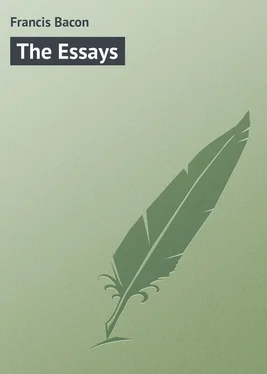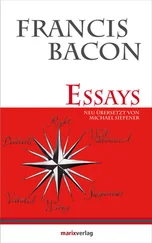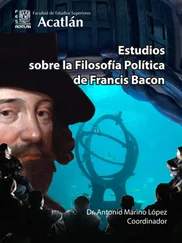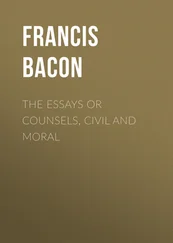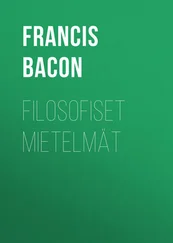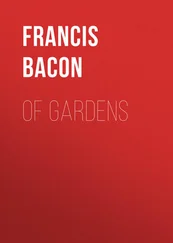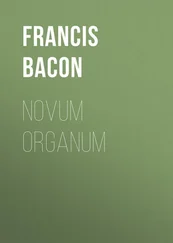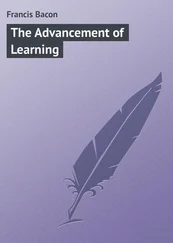Francis Bacon - The Essays
Здесь есть возможность читать онлайн «Francis Bacon - The Essays» — ознакомительный отрывок электронной книги совершенно бесплатно, а после прочтения отрывка купить полную версию. В некоторых случаях можно слушать аудио, скачать через торрент в формате fb2 и присутствует краткое содержание. Год выпуска: 0101, Жанр: foreign_antique, foreign_prose, на английском языке. Описание произведения, (предисловие) а так же отзывы посетителей доступны на портале библиотеки ЛибКат.
- Название:The Essays
- Автор:
- Жанр:
- Год:0101
- ISBN:нет данных
- Рейтинг книги:5 / 5. Голосов: 1
-
Избранное:Добавить в избранное
- Отзывы:
-
Ваша оценка:
- 100
- 1
- 2
- 3
- 4
- 5
The Essays: краткое содержание, описание и аннотация
Предлагаем к чтению аннотацию, описание, краткое содержание или предисловие (зависит от того, что написал сам автор книги «The Essays»). Если вы не нашли необходимую информацию о книге — напишите в комментариях, мы постараемся отыскать её.
The Essays — читать онлайн ознакомительный отрывок
Ниже представлен текст книги, разбитый по страницам. Система сохранения места последней прочитанной страницы, позволяет с удобством читать онлайн бесплатно книгу «The Essays», без необходимости каждый раз заново искать на чём Вы остановились. Поставьте закладку, и сможете в любой момент перейти на страницу, на которой закончили чтение.
Интервал:
Закладка:
Of Cunning
We take cunning for a sinister or crooked wisdom. And certainly there is a great difference, between a cunning man, and a wise man; not only in point of honesty, but in point of ability. There be, that can pack the cards, and yet cannot play well; so there are some that are good in canvasses and factions, that are otherwise weak men. Again, it is one thing to understand persons, and another thing to understand matters; for many are perfect in men's humors, that are not greatly capable of the real part of business; which is the constitution of one that hath studied men, more than books. Such men are fitter for practice, than for counsel; and they are good, but in their own alley: turn them to new men, and they have lost their aim; so as the old rule, to know a fool from a wise man, Mitte ambos nudos ad ignotos, et videbis, doth scarce hold for them. And because these cunning men, are like haberdashers of small wares, it is not amiss to set forth their shop.
It is a point of cunning, to wait upon him with whom you speak, with your eye; as the Jesuits give it in precept: for there be many wise men, that have secret hearts, and transparent countenances. Yet this would be done with a demure abasing of your eye, sometimes, as the Jesuits also do use.
Another is, that when you have anything to obtain, of present despatch, you entertain and amuse the party, with whom you deal, with some other discourse; that he be not too much awake to make objections. I knew a counsellor and secretary, that never came to Queen Elizabeth of England, with bills to sign, but he would always first put her into some discourse of estate, that she mought the less mind the bills.
The like surprise may be made by moving things, when the party is in haste, and cannot stay to consider advisedly of that is moved.
If a man would cross a business, that he doubts some other would handsomely and effectually move, let him pretend to wish it well, and move it himself in such sort as may foil it.
The breaking off, in the midst of that one was about to say, as if he took himself up, breeds a greater appetite in him with whom you confer, to know more.
And because it works better, when anything seemeth to be gotten from you by question, than if you offer it of yourself, you may lay a bait for a question, by showing another visage, and countenance, than you are wont; to the end to give occasion, for the party to ask, what the matter is of the change? As Nehemias did; And I had not before that time, been sad before the king.
In things that are tender and unpleasing, it is good to break the ice, by some whose words are of less weight, and to reserve the more weighty voice, to come in as by chance, so that he may be asked the question upon the other's speech: as Narcissus did, relating to Claudius the marriage of Messalina and Silius.
In things that a man would not be seen in himself, it is a point of cunning, to borrow the name of the world; as to say, The world says, or There is a speech abroad.
I knew one that, when he wrote a letter, he would put that, which was most material, in the postscript, as if it had been a by-matter.
I knew another that, when he came to have speech, he would pass over that, that he intended most; and go forth, and come back again, and speak of it as of a thing, that he had almost forgot.
Some procure themselves, to be surprised, at such times as it is like the party that they work upon, will suddenly come upon them; and to be found with a letter in their hand, or doing somewhat which they are not accustomed; to the end, they may be apposed of those things, which of themselves they are desirous to utter.
It is a point of cunning, to let fall those words in a man's own name, which he would have another man learn, and use, and thereupon take advantage. I knew two, that were competitors for the secretary's place in Queen Elizabeth's time, and yet kept good quarter between themselves; and would confer, one with another, upon the business; and the one of them said, That to be a secretary, in the declination of a monarchy, was a ticklish thing, and that he did not affect it: the other straight caught up those words, and discoursed with divers of his friends, that he had no reason to desire to be secretary, in the declination of a monarchy. The first man took hold of it, and found means it was told the Queen; who, hearing of a declination of a monarchy, took it so ill, as she would never after hear of the other's suit.
There is a cunning, which we in England call, the turning of the cat in the pan; which is, when that which a man says to another, he lays it as if another had said it to him. And to say truth, it is not easy, when such a matter passed between two, to make it appear from which of them it first moved and began.
It is a way that some men have, to glance and dart at others, by justifying themselves by negatives; as to say, This I do not; as Tigellinus did towards Burrhus, Se non diversas spes, sed incolumitatem imperatoris simpliciter spectare.
Some have in readiness so many tales and stories, as there is nothing they would insinuate, but they can wrap it into a tale; which serveth both to keep themselves more in guard, and to make others carry it with more pleasure. It is a good point of cunning, for a man to shape the answer he would have, in his own words and propositions; for it makes the other party stick the less.
It is strange how long some men will lie in wait to speak somewhat they desire to say; and how far about they will fetch; and how many other matters they will beat over, to come near it. It is a thing of great patience, but yet of much use.
A sudden, bold, and unexpected question doth many times surprise a man, and lay him open. Like to him that, having changed his name, and walking in Paul's, another suddenly came behind him, and called him by his true name, whereat straightways he looked back.
But these small wares, and petty points, of cunning, are infinite; and it were a good deed to make a list of them; for that nothing doth more hurt in a state, than that cunning men pass for wise.
But certainly some there are that know the resorts and falls of business, that cannot sink into the main of it; like a house that hath convenient stairs and entries, but never a fair room. Therefore, you shall see them find out pretty looses in the conclusion, but are no ways able to examine or debate matters. And yet commonly they take advantage of their inability, and would be thought wits of direction. Some build rather upon the abusing of others, and (as we now say) putting tricks upon them, than upon soundness of their own proceedings. But Solomon saith, Prudens advertit ad gressus suos; stultus divertit ad dolos.
Of Custom And Education
Men's thoughts, are much according to their inclination; their discourse and speeches, according to their learning and infused opinions; but their deeds, are after as they have been accustomed. And therefore, as Machiavel well noteth (though in an evil-favored instance), there is no trusting to the force of nature, nor to the bravery of words, except it be corroborate by custom. His instance is, that for the achieving of a desperate conspiracy, a man should not rest upon the fierceness of any man's nature, or his resolute undertakings; but take such an one, as hath had his hands formerly in blood. But Machiavel knew not of a Friar Clement, nor a Ravillac, nor a Jaureguy, nor a Baltazar Gerard; yet his rule holdeth still, that nature, nor the engagement of words, are not so forcible, as custom. Only superstition is now so well advanced, that men of the first blood, are as firm as butchers by occupation; and votary resolution, is made equipollent to custom, even in matter of blood. In other things, the predominancy of custom is everywhere visible; insomuch as a man would wonder, to hear men profess, protest, engage, give great words, and then do, just as they have done before; as if they were dead images, and engines moved only by the wheels of custom. We see also the reign or tyranny of custom, what it is. The Indians (I mean the sect of their wise men) lay themselves quietly upon a stock of wood, and so sacrifice themselves by fire. Nay, the wives strive to be burned, with the corpses of their husbands. The lads of Sparta, of ancient time, were wont to be scourged upon the altar of Diana, without so much as queching. I remember, in the beginning of Queen Elizabeth's time of England, an Irish rebel condemned, put up a petition to the deputy, that he might be hanged in a withe, and not in an halter; because it had been so used, with former rebels. There be monks in Russia, for penance, that will sit a whole night in a vessel of water, till they be engaged with hard ice. Many examples may be put of the force of custom, both upon mind and body. Therefore, since custom is the principal magistrate of man's life, let men by all means endeavor, to obtain good customs. Certainly custom is most perfect, when it beginneth in young years: this we call education; which is, in effect, but an early custom. So we see, in languages, the tongue is more pliant to all expressions and sounds, the joints are more supple, to all feats of activity and motions, in youth than afterwards. For it is true, that late learners cannot so well take the ply; except it be in some minds, that have not suffered themselves to fix, but have kept themselves open, and prepared to receive continual amendment, which is exceeding rare. But if the force of custom simple and separate, be great, the force of custom copulate and conjoined and collegiate, is far greater. For there example teacheth, company comforteth, emulation quickeneth, glory raiseth: so as in such places the force of custom is in his exaltation. Certainly the great multiplication of virtues upon human nature, resteth upon societies well ordained and disciplined. For commonwealths, and good governments, do nourish virtue grown but do not much mend the deeds. But the misery is, that the most effectual means, are now applied to the ends, least to be desired.
Читать дальшеИнтервал:
Закладка:
Похожие книги на «The Essays»
Представляем Вашему вниманию похожие книги на «The Essays» списком для выбора. Мы отобрали схожую по названию и смыслу литературу в надежде предоставить читателям больше вариантов отыскать новые, интересные, ещё непрочитанные произведения.
Обсуждение, отзывы о книге «The Essays» и просто собственные мнения читателей. Оставьте ваши комментарии, напишите, что Вы думаете о произведении, его смысле или главных героях. Укажите что конкретно понравилось, а что нет, и почему Вы так считаете.
